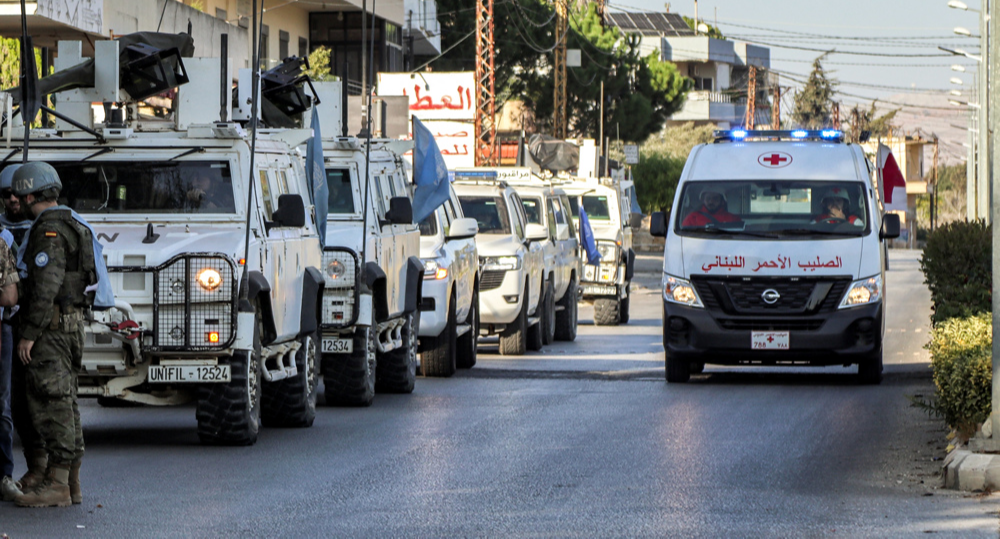
A Lebanese Red Cross ambulance moves past armored vehicles of the United Nations Interim Force in Lebanon (UNIFIL) during their patrol around Marjayoun in south Lebanon on October 8, 2024. (AFP)
Beirut, October 9 (RHC)-- UN humanitarian officials call for urgent action to stop the Israeli regime from turning Lebanon into a second Gaza, as its military forces are using “the same means and methods of warfare” in the Arab country.
Matthew Hollingworth, Lebanon country director for the United Nations’ World Food Program (WFP) warned Tuesday that Israel is using the same methods of warfare in Lebanon that claimed the lives of nearly 42,000 people and caused widespread destruction in the past year in Gaza. "It is in my mind from the time I wake until the time I sleep, that we could go into the same sort of spiral of doom... We shouldn't allow that to happen.”
Hollingworth said many people were fleeing Lebanon because they "have watched over the last year as the war in Gaza has continued and neighborhoods have been decimated and pounded, and that is deep in their gut, in their hearts, in their minds.”
James Elder, spokesman for the UN children's agency UNICEF, also said, "the commonalities are unfortunately absolutely there to be seen, whether it is displacement on the ground, impact upon children or language being used ... (to) soften the realities on the ground.”
And Jeremy Laurence of the UN rights office said, "We are seeing the same patterns that we saw in Gaza.” "The devastation is beyond belief for all people in Lebanon as it is in Gaza. We can't let this happen again."
The decision follows intense Israeli bombardment across Lebanon, which has displaced over a million people.
Israel’s bombardment of Lebanon has killed more than 1,100 people and displaced upwards of a million in less than two weeks, according to officials.
The World Health Organization said it had registered 16 attacks on health care in Lebanon since mid-September, leaving 65 health care workers dead and 40 injured. WHO's deputy incident manager in the country said five of the country's hospitals, it said, were now non-functional and four were only partially functional.
Nearly 100 primary health care facilities had also been forced to close, he said, warning that with limited access to care, "we are facing a situation where there is a much higher risk of disease outbreaks." "We need the world to be more impactful and able to make the arguments that this cannot go on," Hollingworth said.

